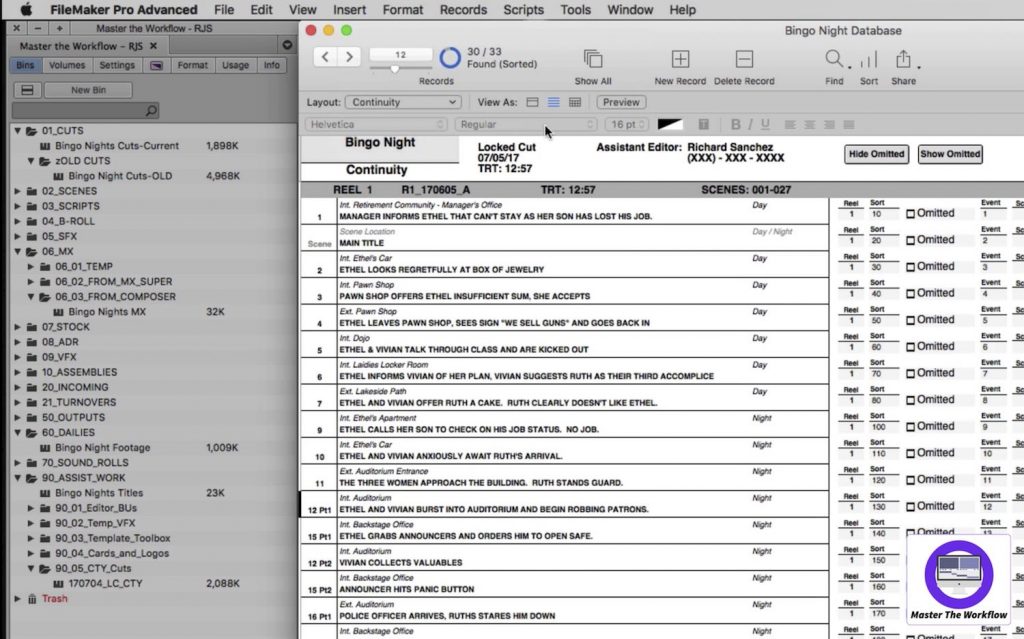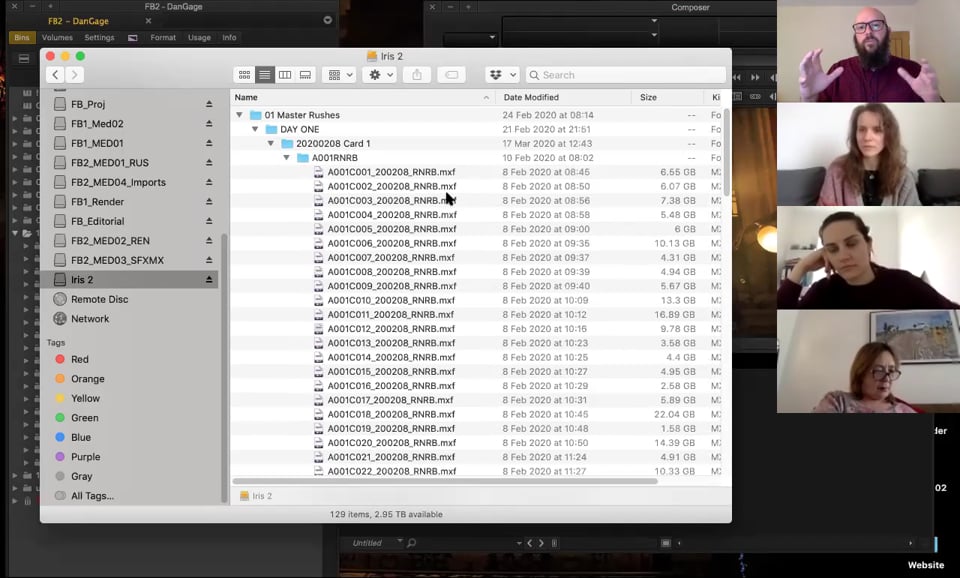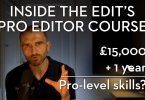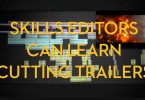How to Become an Assistant Film Editor in 2021
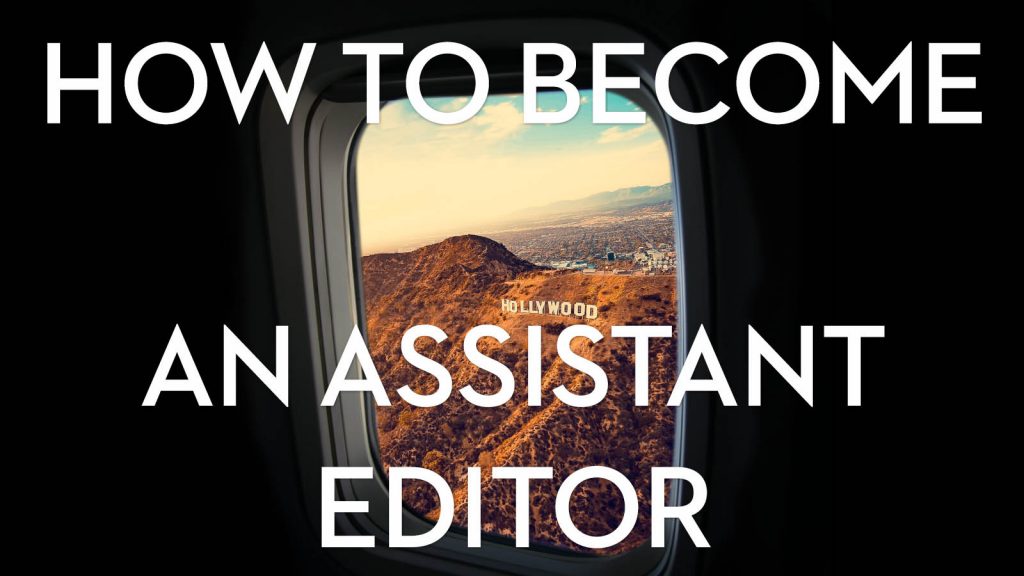
If you want to learn how to become an Assistant Film Editor in 2021 then there are some fantastic free and paid training courses which can help you achieve your goal of getting into the film and TV industry.
In this post I’ll share some of the latest free resources I’ve found that will both inform you about what an Assistant Film Editor needs to know to get a job and to navigate the industry, but also inspire you with the stories of others who are already working as Assistant Editors.
Here is a shortlist of what’s to come:
- Career Advice for Assistant Editors
- Master The Workflow – Free 12 part Mini Course on Assistant Editing
- Master The Workflow Review and Further Resources
- Assistant Editing for Beginners
- Interviews with Assistant Editors
Many of the training videos and interviews in this article talk about Avid Media Composer as the video editing software of choice for a lot of film and TV production, you can download a free version of Avid Media Composer (called AMC First) and learn more about how to use Avid Media Composer, and some essential books to read, in this previous post.
Over the years I’ve written about Assistant Editing a fair few times so be sure to check out these other posts for even more resources, interviews and training courses.
- What do Assistant Editors have to know?
- Inside an Assistant Editor’s Codebook
- How to become an Avid Assistant Editor Overnight
- Master The Workflow Feature Film Assistant Editor Course Reviewed
- How to move up from First Assistant Editor to Film Editor
- How to be a 2nd Assistant Film Editor
- How to become a 2nd Assistant Film Editor
Career Advice for Assistant Film Editors
If you’re dreaming of one day working on big film and TV projects then the best thing I could tell you is what Rob Sealey, recently 1st Assistant Editor on Star Wars: The Rise of Skywalker, told me when he was just starting out as a 2nd Assistant Film Editor:
Don’t be intimidated by the film industry…
Rob Sealey, Assistant Editor
In this post Rob share’s his strategy for breaking into the industry as a 2nd Assistant Editor when starting from scratch with zero contacts. Read it!
At this point you’ve stopped selling yourself and asking for work right away, you’ve ditched the templates, and your message is short and concise. And you’ve also made it clear who you are, what you want, and where you need help.
Now it’s time for the “ask.” This is where most people blow it.
Zach Arnold
Another superb resource for anyone trying to find their way into the film industry is this excellent article by Zach Arnold for the Film Editing Pro blog, on networking for those who don’t feel confident networking!
The article focuses on some really solid advice for crafting ‘cold emails’ when reaching out to editors you admire.
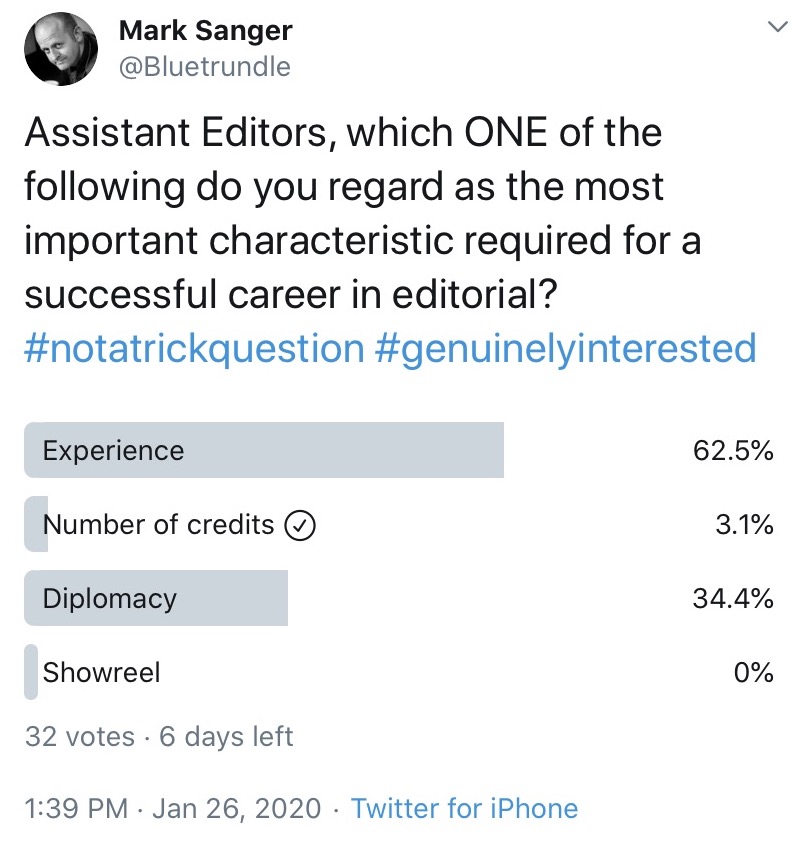
Oscar winning Editor Mark Sanger posed this question on Twitter at the beginning of 2020 on the most important characteristic for an Assistant Editor to have for a successful career in editorial.
Master The Workflow – Free 12 Part Mini Course
Master The Workflow, created by editor Lawrence Jordan and Assistant and Visual Effects Editor Richard Sanchez, is probably the best online training course I’ve seen, that will both train you to master the technical, practical and personal skills an Assistant Editor needs and support your industry journey through their private Facebook group for course members, which is packed with helpful answers to tough questions, job opportunities and more.
Master The Workflow has is releasing a free 12-part series of lessons to give you a solid overview of what an Assistant Editor does, how they have to work with others and some of the technical aspects of the job.
You can sign up to get each of the 12 lessons delivered to your inbox here, as soon as they become available and to get other news from MTW, but I’ve included all 12 lessons in this post too, check out the complete YouTube playlist above.
If you’re curious about becoming an assistant editor it would be well worth your time to watch the entire free mini-course to see what you’re getting yourself into.
The course lasts about an hour in total and covers the following topics:
What the Assistant Editor Needs to Know Before They Begin:
- Lesson 1 – Before Production Begins
- Lesson 2 – Knowing Your Non-Linear Editing Software
- Lesson 3 – Project Organization
The Assistant Editor Workflow
- Lesson 4 – Prepping Dailies
- Lesson 5 – Tracking Metadata
- Lesson 6 – Building Reels
- Lesson 7 – Temp Sound & VFX
- Lesson 8 – Outputs
Working Relationships & Being Part of a Team
- Lesson 9 – Supporting your Editor
- Lesson 10 – Editing Diplomacy
- Lesson 11 – Working with Team Members
- Lesson 12 – Networking
Each short lesson flows in a conversational style between Richard and Lawrence, and if you’re new to Assistant editing, you’d do well to make notes as you go because the insights are fairly densely packed.
These things (change lists, multi-groups, turnovers) tend to be scary when you’ve never done them and it’s probably good to know that most of these things are pretty simple once you understand conceptually what they are but absolutely knowing your software inside and out is crucial.”
Assistant Editor, Richard Sanchez
Sign up for the free mini-course for yourself here.
More Free Assistant Film Editor Resources!
If you’re after even more free resources from Master The Workflow, then you’re in luck because not only are there some great in-depth interviews with world-class editors on their Youtube channel, but they also give away the following freebies (in exchange for your email) too:
- 10 page guide – Feature Film Assistant Editor Essentials – Your 5 Key Contacts on Set
- 9 page guide – Feature Film Assistant Editor Essential – What To Do Right After You’re Hired
- Podcast – Becoming a Professional Assistant Film Editor
- Podcast – The Assistant Film Editor’s Digital Codebook Explained
Master The Workflow – Feature Film Assistant Editor Immersion Training Course Review
If you’re serious about becoming an Assistant Film Editor in 2021 then I’d highly recommend considering investing both your time and money in Master The Workflow’s Feature Assistant Film Editor Immersion 1.0 training course.
The course covers pretty much everything you need to know to become an employable Assistant Editor:
- Pre-Production – 3 lessons
- Setting Up – 5 lessons
- The Digital Codebook – 8 lessons
- Principal Photography – 5 lessons
- Editorial – 6 lessons
- Finishing – 5 lessons
- Extras – Practice Media
- Bonus – VFX Roto in Avid Media Composer
I’ve previously reviewed the course in this article, which breaks down in detail everything that’s included, how much it costs and whether it’s worth the money and even what a professional Assistant and VFX Editor who has worked on films like Mission Impossible: Fallout makes of the course.
I’ve just had a quick look through Larry and Richard’s Master The Workflow tutorials and wow its concise and incredible the work they’ve done!
I’ve been going through Richard’s Codebook too and it’s awesome, it does everything you’d need to get you up and running from an editorial stand point in FileMaker. A great insight into how powerful FileMaker can be as a backbone for the cutting room.
They’ve done some outstanding work here, it really is a go to method for any wannabe Assistant Editor’s out there. It’ll help to maintain and run a healthy cutting room no matter who the editor is or what requests get thrown your way.
Ben Mills, Assistant and VFX Editor
One of the biggest benefits to taking the course is access to Richard Sanchez’s FileMaker Pro Codebook (which he frequently updates for course members), which is effectively the digital beating heart at the centre of the assistant editor’s workflow.
Normally these are closely guarded assets that Assistant Editors will bring with them from job to job – a part of their secret sauce if you will. So it’s a really valuable part of taking the Master The Workflow course.
If you want to learn a lot more about what an Assistant Editor’s codebook is and how it functions check out this previous post on Inside an Assistant Film Editor’s Codebook.
Another huge benefit to taking the course is lifetime access to the private Master The Workflow Facebook group, where you can ask questions and get quick answers to common assistant editing questions, or the particulars of how to handle a specific workflow on a new project.
I compiled 10 common questions and answers from the group (with permission!) in this post on What do Assistant Editor’s Have to Know, for a small taste of what’s discussed in the group.
Have there been many students who are taking the course and then going on to get their first jobs?
Yeah absolutely. It’s very exciting, I get emails and read the threads in the Facebook group, and I see people commenting that they just landed their first scripted show.
A lot of people are transitioning from Reality TV, which has a very specific workflow, and they post about landing their first scripted show, which is really a lot of our student’s objective. And we’re thrilled when we hear about that.
Lawrence Jordan, Editor and Co-founder of Master The Workflow
It’s also worth mentioning that you don’t need to be living and working in Los Angeles or New York to make taking this course worth while, as Lawrence mentioned in the interview I did with him one year after the initial launch of Master The Workflow they have students enrolling from all over the world, including “Australia, New Zealand, UK, Spain, France, Slovakia, Russia, China, India…“
Check out my Master The Workflow Feature Film Assistant Editor Course Review here.
Assistant Film Editing for Beginners
Aideen Johnston hosts this two hour workshop from BECTU and The Rough Assembly, which is a superb place to see in detail exactly what an Assistant Editor does and get a really solid overview of a post production workflow from the assistant’s perspective.
I wish there were time-stamped chapters but from about 27 minutes in, Aideen guides you through many of the jobs an Assistant editor would do in Avid Media Composer, step-by-step.
Anyone who wants to be an assistant editor should watch this and all the other excellent videos on their YouTube channel, which include many other conversations with award winning editors and sound editors as well as picture and sound assistants.
Editor Monica Daniel (also interviewed further down in this post) delivered a brilliant workshop on Assistant Editing in Scripted TV in this 2 hour presentation for BCPC back in 2018. She covers a lot of ground including temp VFX, sound design and the specifics of working in scripted TV.
One of the book’s Monica recommends early on is Make The Cut, which I’ve reviewed in detail here.
She also helpfully clarifies a few different terms between the US and international markets.
The Blue Collar Post Collective is an essential Facebook group to add yourself to when it comes to being a part of the global post production community.
In this conversation between Editorial Trainees Imogen Marks and Eleanor Adler you can learn a ton about how to break into post-production, especially in the UK, as a trainee or post-production intern in the first hour of the webinar, followed by another hour of Q&A.
In this follow up webinar you can hear from a panel of first assistants and assembly editors working on feature films, documentaries and factual TV series.
The panel includes:
- Riccardo Bacigalupo – First Assistant Editor (Mission: Impossible – Fallout, War Machine, Kingsman: The Secret Service)
- Naomi Smallwood – First Assistant/Assembly Editor (Chimerica, Cleaning Up, Humans)
- Toby Nutter – Documentary Editor (24 Hours in A&E, History Hunters,)
- Jasmin John – First Assistant Editor (Tin Star, Liar, Horrible Histories: The Movie)
In this interesting video from UK Assistant Editor Dan Gage, you can get a detailed overview of the post production workflow aimed for production crew – and how those two interact with some interesting insights chimed in from other members of the webinar.
Dan’s presentation is well worth a watch for a detailed understanding of how this works in real life!
Interviews with Assistant Editors in Film and TV
Filmmaker U has a great, and growing, collection of interviews with some really interesting and award winning filmmaking crew, including editors, cinematographers, colorists, sound designers and assistant editors.
Host Gordon Burkell does a great job of drawing out some really helpful insights and informal anecdotes from each interviewee and I’ve brought together the best of these interviews with assistant editors.
Watch these to get a better sense of what it’s really like to live and work in the industry!
Filmmaker U produce some really fantastic post production training courses, including this one with Mad Max: Fury Road colorist Eric Whipp, which you can get a 10% discount on with the following promo codes:
- Colorist Eric Whipp = JONNY
- Sound Designer Eugene Gearty = 3UG3NE4J0NNY (the o is a zero)
- Editor Brian Kates = BR14N4J0NNY (the o is a zero).
Assistant Editor Christopher Frith’s credits include Star Wars: Rogue One, Kingsman: The Golden Circle, Wonder Woman 1984 as well as some smaller scale indie movies.
Christopher shares how he got into the industry, what it likes to work under Editor Eddie Hamilton as an Assistant on Mission Impossible 7&8 during a global pandemic as part of an 8-person post crew.
In this conversation between Gordon Burkell and Assistant Editor Siân Fever they cover a lot of ground including the process of working from home on The Crown, why Schitt’s Creek kept her afloat during the pandemic and a lot more.
One of the topics they cover is when Siân worked for the previs company The Third Floor, as an in-house editor, why it’s important to visit all of the other departments in post if you can and a lot more.
The best advice I think I’ve ever been given in this industry is have savings, have a little pot of money that means you get to choose your next job so you don’t just have to take the next thing that comes along.
By choosing the next thing that you do, you’re going to be strategically building what your CV looks like… so that (your CV) can show people where you want to go.
Sian Fever
This interview with Assistant Editor and Post PA Marco Gonzalez is worth a watch to get a good idea of how to work on a reality TV pilot during corona virus lockdown and working with a team of local drives in multiple locations – including a 3 hour drive to LA for a 5 second file transfer.
One of the things that I really enjoyed about Marco’s perspective on his career journey so far is how often he used the phrase “I’m really fortunate to have had the opportunity to…” – as it demonstrated both his excitement at working in post production and his humility. Essential character traits!
Editor and Assistant Editor Monica Daniel is interviewed by Gordon in this instalment of the Filmmaker U interview series.
They cover her work as an Assistant Editor and Editor on DC’s Legend’s of Tomorrow, Colony and Altered Carbon – and getting her first co-editing credit on an episode of Legends which involved an insane John Woo style action sequence.
Looking for Assistant Video Editor jobs in the UK? Jooble is one place to find them.

